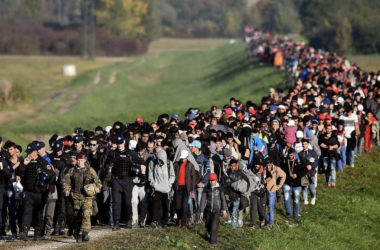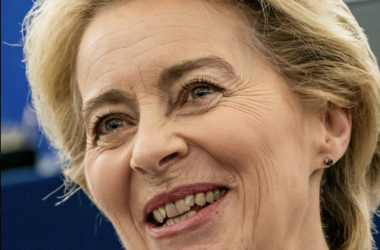In a passionate speech before the European Parliament on Tuesday, German MEP Petr Bystron (AfD) criticized ongoing arms shipments to Ukraine, questioning their purpose and effectiveness as the war continues to claim countless lives.
Bystron pointed to recent surveys suggesting that a majority of Ukrainians favor peace negotiations, even if it means territorial concessions, and lamented the staggering human toll of the conflict.
“Half a million Ukrainian men of working age have already fled the country, unwilling to face a tragic end,” Bystron stated. “Another 500,000 are no longer here to vote for peace—they’re dead. Isn’t that enough?”
Petr Bystron (@AfD): „Für wen führen Sie diesen Krieg in der Ukraine eigentlich?“
Der EU-Abgeordnete @PetrBystronAfD spricht im Europaparlament Klartext: pic.twitter.com/TIPUnncIZM
— Deutschland Kurier (@Deu_Kurier) November 27, 2024
The Alternative für Deutschland MEP accused Western governments of ignoring calls for diplomacy, branding those who advocate for negotiations as “agents of Moscow.” He highlighted a shift in rhetoric from Ukrainian President Volodymyr Zelensky, who has recently expressed openness to a diplomatic resolution. “Is Zelensky now a Putin agent too?” Bystron asked rhetorically. “Or is he simply acknowledging what we’ve been saying for two years—that this war must end?”
Bystron tied the changing dynamics to global political shifts, suggesting that U.S. President Donald Trump’s election signals the end of large-scale arms deliveries to Ukraine. He warned against escalating the conflict further, posing a stark question to his colleagues: “Are we really willing to march toward a third world war, just as the war is nearing its end?”
The MEP accused the European Union of prioritizing the interests of the arms industry, NATO, and intelligence agencies over those of ordinary citizens. “This war was never legitimized by any parliament,” he argued. “The people of Ukraine, Russia, America, and Europe don’t want this war. So why are we being dragged into it?”
Calling the situation “over,” Bystron urged immediate cessation of arms deliveries and a pivot toward peace negotiations. His speech reflected growing concerns in Europe about the humanitarian, economic, and geopolitical consequences of the prolonged conflict.
As divisions deepen within the EU over how to approach the war in Ukraine, Bystron’s remarks underscore a call for a reevaluation of policies that some argue are prolonging suffering rather than fostering resolution.




